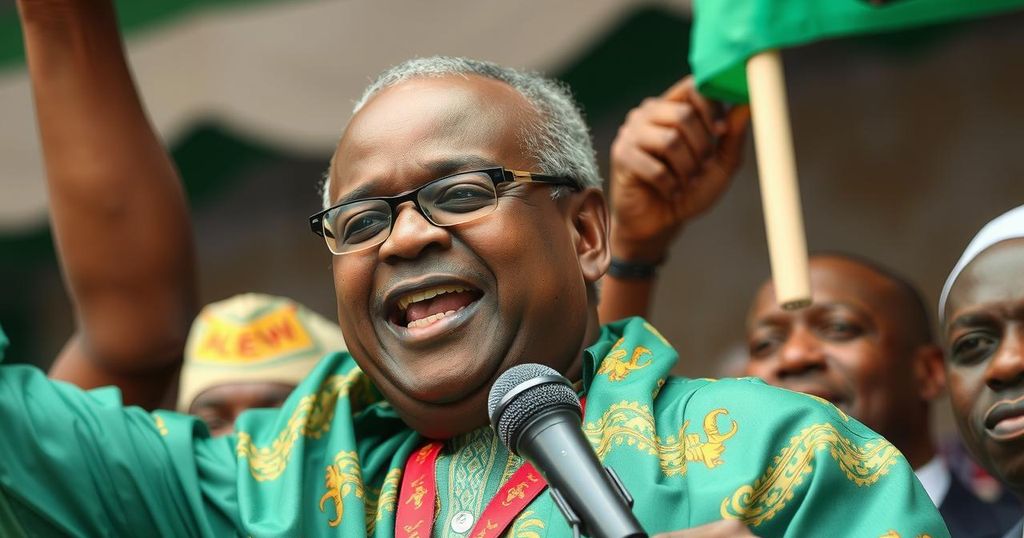John Mahama wins Ghana’s presidential election following Vice President Mahamudu Bawumia’s concession. Mahama’s victory reflects the electorate’s demand for change amid economic challenges. The NDC has also achieved success in parliamentary elections, with Mahama pledging reforms to combat corruption and address pressing social issues. This marks a historic return to power after previously being ousted.
Former President of Ghana, John Dramani Mahama, has emerged victorious in the recent presidential election, succeeding after his main adversary, Vice President Mahamudu Bawumia, acknowledged his defeat publicly. In a morning news conference, Bawumia expressed respect for the citizens’ decision, stating, “The people of Ghana have spoken, the people have voted for change at this time and we respect it with all humility.” This election marks a significant shift, ending the two-term rule of the governing New Patriotic Party (NPP) led by President Nana Akufo-Addo, who faced significant challenges including a serious economic crisis defined by high inflation and national debt default.
The National Democratic Congress (NDC), led by Mahama, reportedly captured 56.3 percent of the votes according to an internal party analysis, leading to Bawumia’s congratulatory call to Mahama. Echoing sentiments of change, NDC spokesperson Sammy Gyamfi remarked, “It is very clear the people of this country have voted for change.” Preliminary results have indicated not only Mahama’s success in the presidential race but also NDC’s dominance in the parliamentary elections. Mahama’s triumph is historic; he becomes the first president in Ghana’s modern democratic era to reclaim office after previously being voted out.
Ghana’s recent election was primarily influenced by socioeconomic factors, particularly the distressing economic conditions exacerbated by issues such as currency devaluation and the country’s need for a $3 billion bailout from the International Monetary Fund (IMF). Mahama’s focus during the campaign included pledges to enhance government procurement oversight, aimed at addressing corruption. However, he has also shown support for a controversial anti-LGBTQ bill. Official results from the election commission are expected by Tuesday, further solidifying the new political landscape in Ghana, traditionally characterized by a stable alternation in power between the NPP and NDC since the reinstatement of multi-party democracy in 1992.
The political backdrop of Ghana has been defined by a competitive yet stable democratic process since the return to multi-party politics in 1992. The electoral success of Mahama follows a significant period of dissatisfaction with the ruling party amid economic turmoil, leading to rising inflation and government debt crisis. The election underscores the electorate’s desire for change, presenting a challenge to the incumbent party which has governed for the last eight years. Furthermore, issues such as corruption and social policies, particularly concerning LGBTQ rights, have started to dominate the political discourse.
In conclusion, John Mahama’s victory represents a pivotal moment in Ghanaian politics, signaling a desire for reform and accountability amidst widespread economic distress. The acknowledgment of defeat by Vice President Bawumia showcases a commitment to democratic principles in leadership transitions in Ghana. As the NDC prepares to assume leadership, the focus will likely remain on addressing pressing economic issues and public concerns regarding governance and social policies. The upcoming official results will further underscore the major shifts in the political environment following this election.
Original Source: www.aljazeera.com





